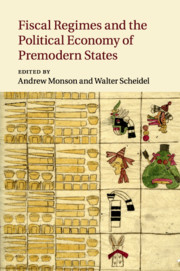Refine search
Actions for selected content:
26946 results in Economic history
4 - Genoa, Venice and Livorno (a tale of three cities)
-
- Book:
- Political Economies of Empire in the Early Modern Mediterranean
- Published online:
- 05 May 2015
- Print publication:
- 05 May 2015, pp 89-109
-
- Chapter
- Export citation
Copyright page
-
- Book:
- Political Economies of Empire in the Early Modern Mediterranean
- Published online:
- 05 May 2015
- Print publication:
- 05 May 2015, pp iv-iv
-
- Chapter
- Export citation
Note on dates and spelling
-
- Book:
- Political Economies of Empire in the Early Modern Mediterranean
- Published online:
- 05 May 2015
- Print publication:
- 05 May 2015, pp xxii-xxii
-
- Chapter
- Export citation
8 - The English mercantile community in Venice
-
- Book:
- Political Economies of Empire in the Early Modern Mediterranean
- Published online:
- 05 May 2015
- Print publication:
- 05 May 2015, pp 202-235
-
- Chapter
- Export citation
2 - The reversal of the balance
-
- Book:
- Political Economies of Empire in the Early Modern Mediterranean
- Published online:
- 05 May 2015
- Print publication:
- 05 May 2015, pp 39-63
-
- Chapter
- Export citation
11 - Empires and governance in the Mediterranean
-
- Book:
- Political Economies of Empire in the Early Modern Mediterranean
- Published online:
- 05 May 2015
- Print publication:
- 05 May 2015, pp 300-341
-
- Chapter
- Export citation
Printed primary sources and bibliography
-
- Book:
- Political Economies of Empire in the Early Modern Mediterranean
- Published online:
- 05 May 2015
- Print publication:
- 05 May 2015, pp 359-395
-
- Chapter
- Export citation
Preface
-
- Book:
- Political Economies of Empire in the Early Modern Mediterranean
- Published online:
- 05 May 2015
- Print publication:
- 05 May 2015, pp vii-xii
-
- Chapter
- Export citation
7 - The Venetian peculiarities
-
- Book:
- Political Economies of Empire in the Early Modern Mediterranean
- Published online:
- 05 May 2015
- Print publication:
- 05 May 2015, pp 174-201
-
- Chapter
- Export citation
Frontispiece
-
- Book:
- Political Economies of Empire in the Early Modern Mediterranean
- Published online:
- 05 May 2015
- Print publication:
- 05 May 2015, pp xxiv-xxvi
-
- Chapter
- Export citation
3 - The Ottoman Levant
-
- Book:
- Political Economies of Empire in the Early Modern Mediterranean
- Published online:
- 05 May 2015
- Print publication:
- 05 May 2015, pp 64-88
-
- Chapter
- Export citation
10 - The goods of the trade
-
- Book:
- Political Economies of Empire in the Early Modern Mediterranean
- Published online:
- 05 May 2015
- Print publication:
- 05 May 2015, pp 269-299
-
- Chapter
- Export citation
12 - Coda and conclusions
-
- Book:
- Political Economies of Empire in the Early Modern Mediterranean
- Published online:
- 05 May 2015
- Print publication:
- 05 May 2015, pp 342-358
-
- Chapter
- Export citation
Note on documentary sources
-
- Book:
- Political Economies of Empire in the Early Modern Mediterranean
- Published online:
- 05 May 2015
- Print publication:
- 05 May 2015, pp xvi-xxi
-
- Chapter
- Export citation
Contents
-
- Book:
- Political Economies of Empire in the Early Modern Mediterranean
- Published online:
- 05 May 2015
- Print publication:
- 05 May 2015, pp v-v
-
- Chapter
- Export citation
URUGUAY AND THE FIRST GLOBALIZATION: ON THE ACCURACY OF EXPORT PERFORMANCE, 1870-1913*
-
- Journal:
- Revista de Historia Economica - Journal of Iberian and Latin American Economic History / Volume 33 / Issue 2 / September 2015
- Published online by Cambridge University Press:
- 05 May 2015, pp. 287-320
- Print publication:
- September 2015
-
- Article
- Export citation

Fiscal Regimes and the Political Economy of Premodern States
-
- Published online:
- 05 May 2015
- Print publication:
- 23 April 2015
Index
-
- Book:
- Political Economies of Empire in the Early Modern Mediterranean
- Published online:
- 05 May 2015
- Print publication:
- 05 May 2015, pp 396-408
-
- Chapter
- Export citation
Figures, maps and graphs
-
- Book:
- Political Economies of Empire in the Early Modern Mediterranean
- Published online:
- 05 May 2015
- Print publication:
- 05 May 2015, pp vi-vi
-
- Chapter
- Export citation
Acknowledgements
-
- Book:
- Political Economies of Empire in the Early Modern Mediterranean
- Published online:
- 05 May 2015
- Print publication:
- 05 May 2015, pp xiii-xv
-
- Chapter
- Export citation
